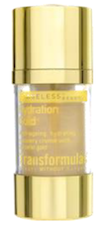London: The London Lingual Orthodontic Clinic is the first UK surgery to offer bespoke or couture braces made of gold.
The process involves impressions of the mouth taken by a high-resolution 3D scanner to produce individually designed brackets that are then placed behind the teeth, instead of in front, to negate the train-track look.
The made-to-measure aspect ensures the wearer isnt affected by lisping or tongue irritations, and, if so inclined, users can convert the brackets into jewellery once treatment is completed.
Lingual, or invisible orthodontics resemble the traditional braces that usually adorn teenagers mouths, but the brackets are placed behind the teeth where they cannot be seen, instead of the front remaining totally inconspicuous and therefore the ideal choice for the image-conscious. Past patients of the London Lingual Orthodontic Clinic have included celebrities Kelly Brook and Sadie Frost, and most recently Steve Jones from T4.
According to Dr. Asif Chatoo, dentist and co-Founder of the London Lingual Orthodontic Clinic www.londonlingualbraces.com
More and more patients are requesting not only an excellent aesthetic result but also an individualised approach. These requirements first led to the development of invisible or hidden braces, for people concerned about how their smiles would look. Now, the latest brackets are entirely bespoke – cast in gold and made for each tooth to ensure comfort as well as discretion.
For bespoke, or couture braces, silicone impressions of the teeth are taken and plaster casts then made from them. The plaster teeth are cut and repositioned on a wax base so that they are perfectly aligned. This ideal set up is then scanned by a high-resolution optical 3D scanner. Brackets are then designed individually for each tooth.
Using the latest technology, the virtual bracket created in wax version is then cast in a gold alloy, an easier, malleable metal for use in these highly personalised designs. The dentist is then able to bond all brackets onto the teeth with maximum precision with the guarantee that each is positioned correctly.
Dr. Chatoo says:
The results are amazing and a look in the mirror during the very first weeks will reveal the early signs of success. As the teeth are not obscured with metal brackets, the patient is able to observe their teeth becoming straight. Previously, the assumption had been that lingual braces would result in oral pain or lisping, but the refinement in materials and application has meant the process can be virtually painless, with little or no noticeable effect in speech.
The London Lingual Orthodontic Clinic is the first-ever dental clinic dedicated to lingual, or invisible orthodontics and now one of the first in the UK to offer couture braces. Founded by Drs Didier Fillion and Asif Chatoo, the private practice is based on 57a Wimpole Street, London, W1G 8YP. They also offer traditional dentistry services as well as cosmetic procedures. T: 44(0)207486 2883 to make an appointment. This procedure costs £4,000 for a upper or lower and up to £8,500 for complex cases.


